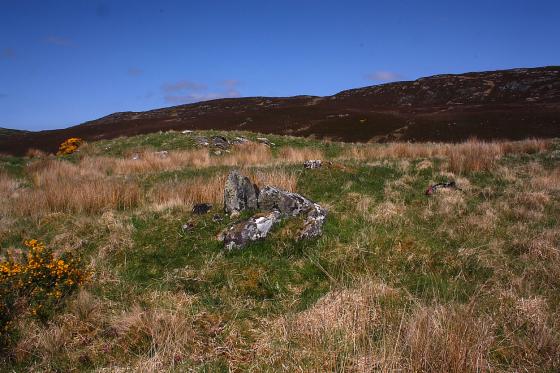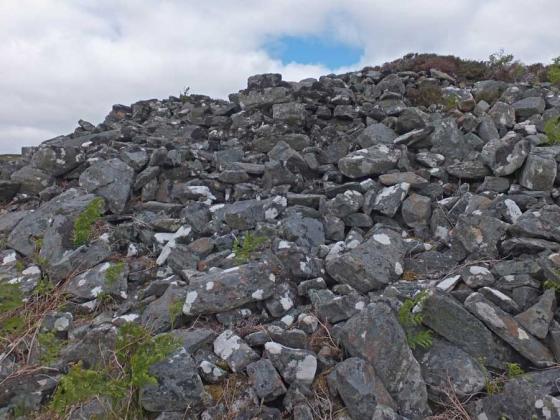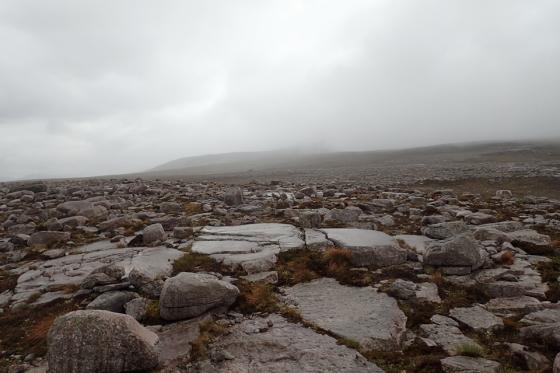
From What to see around the Kyle of Tongue by Kevin J. O’Reilly.

From What to see around the Kyle of Tongue by Kevin J. O’Reilly.
To the west [is] Loch-an-Hacon, or as it is generally called Loch-an-Haalkal, in which is an island with the remains of a castle on it, said to have been built by Hacon for a hunting seat [...] it is said that a causeway ran from the island to the mainland, a distance of 20 or 30 yards; the water is now, however, 6 or 7 feet deep. On the edge of the preciptious bank of the loch, and exactly opposite the island, there is a large boulder with a flat top, and on this there are a number of cups and rings. The people say they were made by the high heels of a fairy who lived in the castle. This stone is not generally known. Old Ross, the gamekeeper at Tongue, first told me of it, and he and I scraped off the moss and exposed the whole. He thought it was for playing some game. On the left of the stone, on a bit separated by a crack, there is a sort of a figure which appears to have been formed by cutting away the stone around it and leaving it in relief, and also some artificial cutting on the right, a sort of circular groove.
From ‘Notes of Cromlechs, Duns, Hut-Circles, Chambered Cairns and other remains, in the County of Sutherland’ by James Horsburgh, in PSAS v7 (1866-8).
The guidebook from which the illustration is taken gives a slightly different description of the carvings from that given in Canmore.
“There are about 36 separate conical cups up to 3 inches in diameter; 20 of these are surrounded by rings up to 7 inches across. The southerly end of the boulder bears a rather oddly shaped projection or boss which has been carved artificially.”
Lochan Hakel on BRAC










































